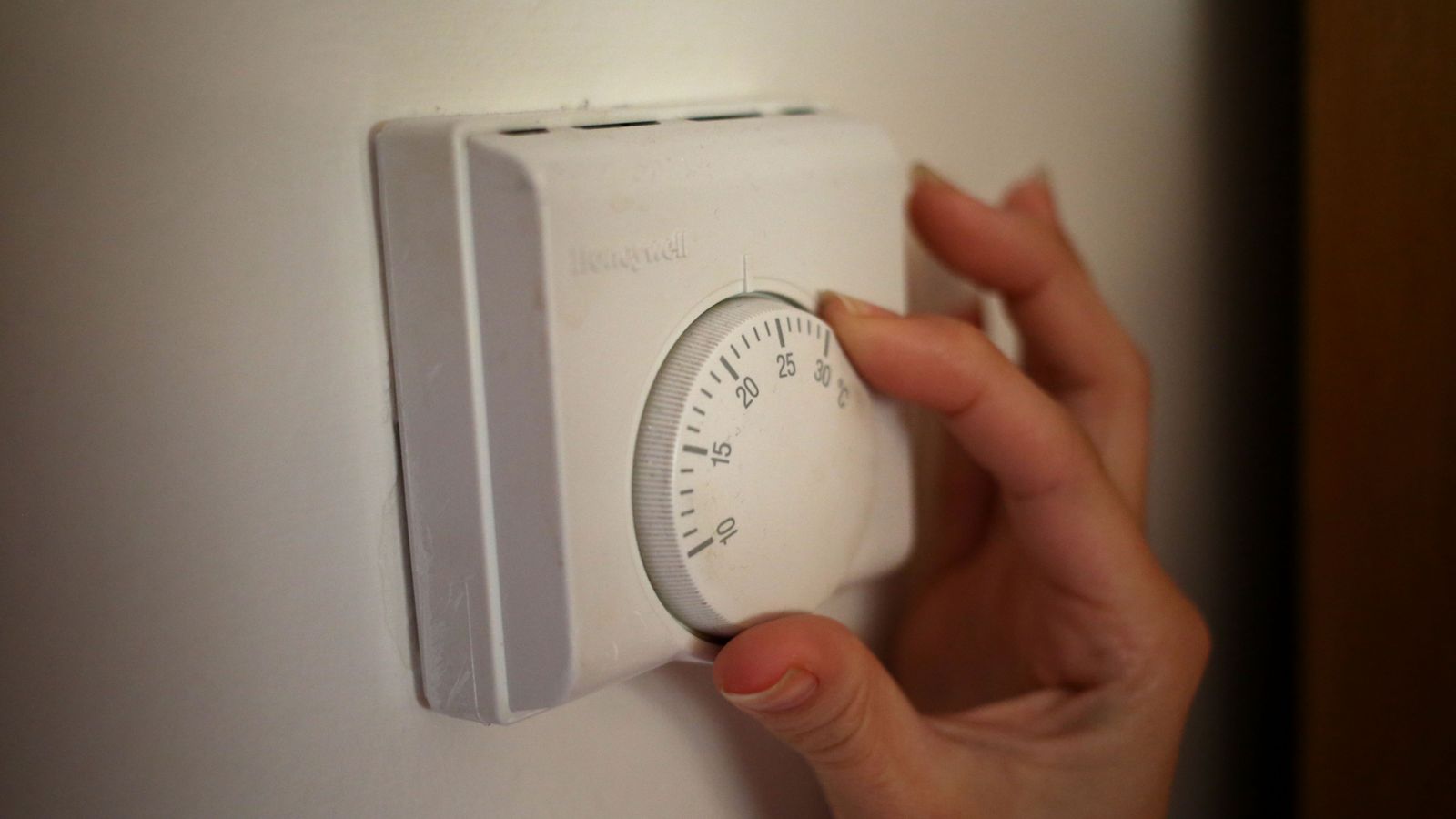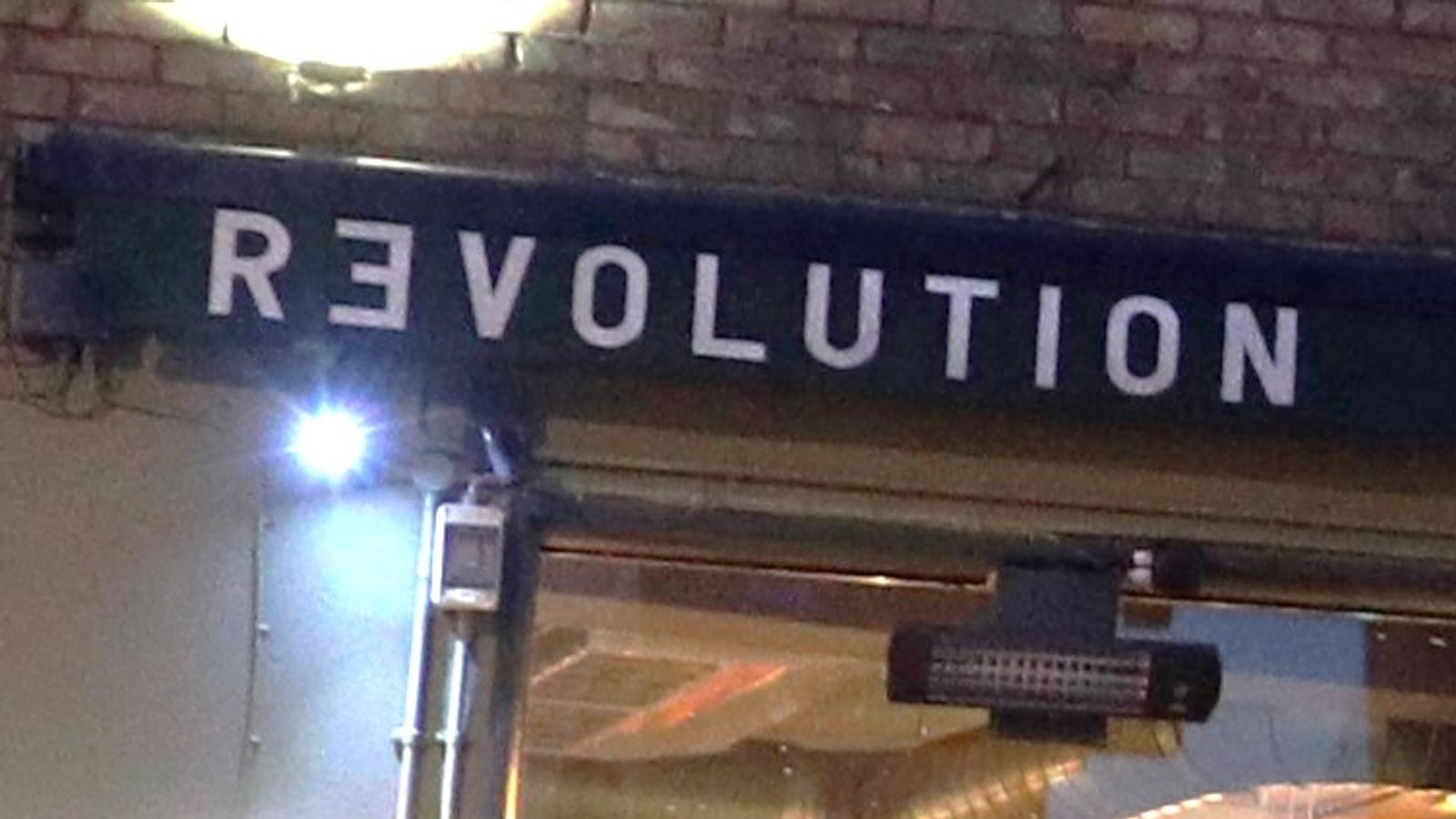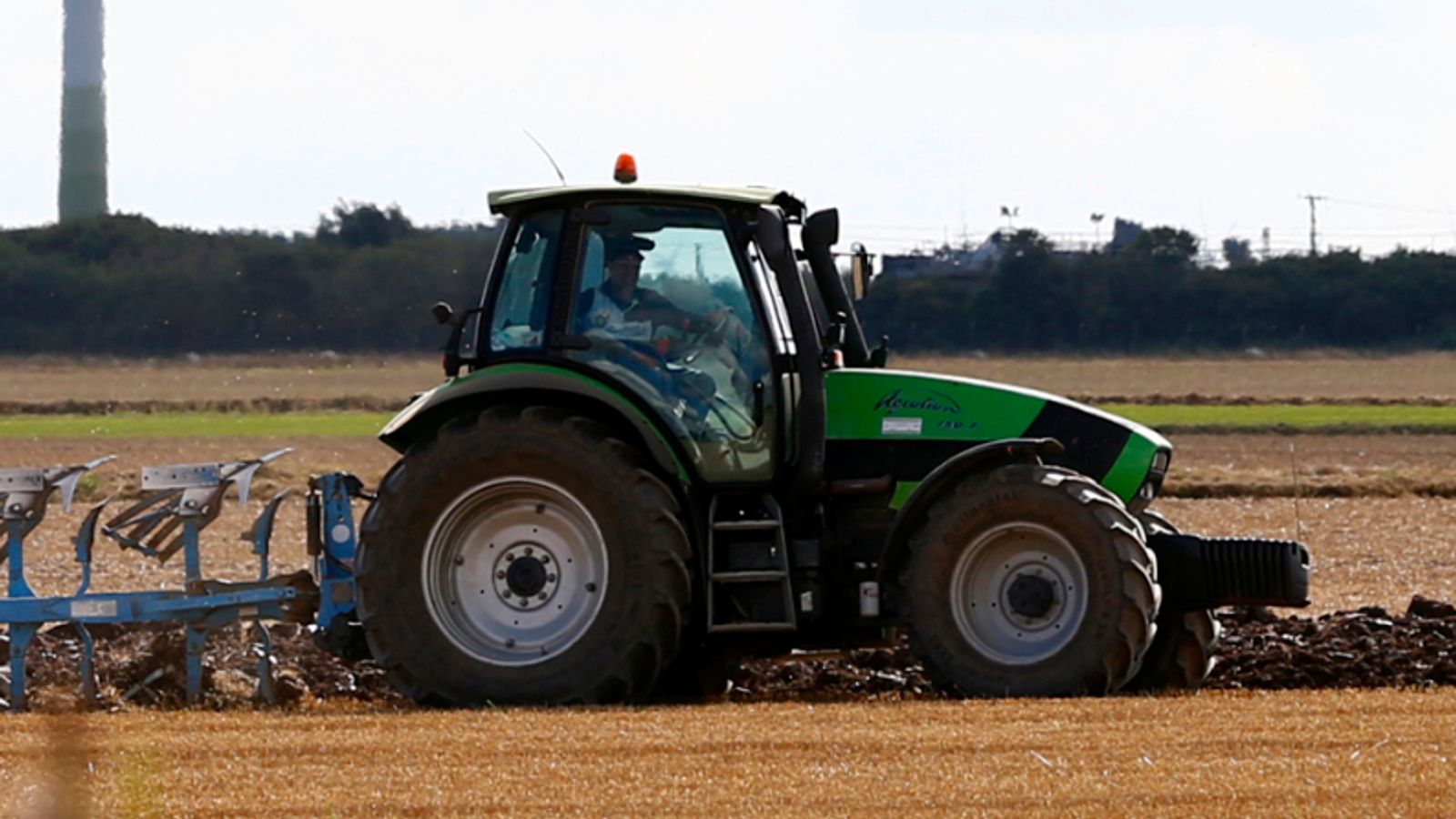Soaring inflation, fuelled by Russia's invasion of Ukraine, has driven up costs and despite falling back remains positive.
Pic: PAThe reason for the fall in the household energy price cap is pretty straightforward – wholesale electricity and gas prices have fallen since the price cap was last set in February this year.
Wholesale gas and electricity prices make up by far the biggest proportion of the energy bills – £720 of the current £1,690 – and Ofgem is assuming, for July, August and September, a wholesale electricity price of 22.36 pence per kilowatt hour (kWh), down from 24.50 pence per kWh during the current quarter.
It is assuming also a wholesale gas price of 5.48 pence per kWh from July to September, down from 6.04 pence per kWh during the current quarter.
Money blog: Latest consumer and personal finance news
That brings down the wholesale energy component of the typical bill (which is based on an assumption that a household will use 12,000 kWh per year of gas and 2,900 kWh of electricity) from £720 to £619.
The question some people may have, though, is why the energy price cap that Ofgem has set for the three months from July remains higher, at £1,568, than the level at which it was set – £1,277 – at the time the energy crisis was sparked by Russia's invasion of Ukraine.
At first blush, this seems a reasonable enough question, given that a barrel of Brent Crude – a reasonable enough proxy for wholesale energy prices – stands today at $80.78 (£63.50) per barrel, down from the heights it hit after the invasion.
Quarterly price cap
But bear in mind that, in those days, the price cap was only set by Ofgem every six months, rather than quarterly as at present.
The price cap in place immediately before the crisis came into effect on 1 October 2021 having been set on 6 August that year.
Prior to that, wholesale energy prices had been lower than they are now. The wholesale energy component for the price cap for the winter of 2021/22 was, accordingly, £528 – lower than the £619 it will be from July.
Other costs taken into account by Ofgem are also higher now than they were before Russia invaded Ukraine.
Costs increasing
Network costs assumed by Ofgem, for example, are £363 now compared with £268 in winter 2021-22.
Supplier operating costs are assumed to be £223 this summer compared with £203 in winter 2021-22.
And policy costs – largely to costs imposed by government social and environmental schemes – are assumed to be £188 this summer compared with £159 in winter 2021-22.
All of those higher costs largely reflects the increased levels of inflation seen in the economy since Russia invaded Ukraine.
Read more on Sky News:Are you being mis-sold beer? Study casts doubt over Britain's pintsRetail sales figures suggest bad news for overall economic growth but consumer confidence is up
The energy suppliers will have seen their staffing costs (which, apart from wholesale energy, is their biggest cost) rise sharply due to wage inflation.
So too the network operators.
And all will have seen their operating costs, likewise, rise due to higher energy prices and higher prices in other commodities.
Keep up with all the latest news from the UK and around the world by following Sky News
Think of it this way. The headline rate of inflation has fallen from a peak of 11.2% in October 2022 to just 2.3% in April.
But the price increases in individual items in the inflation basket since then, in most cases, remain in place and have been compounded.
Inflation positive
Inflation is still positive.
Accordingly, for example, the price of an average 800g loaf of white bread which cost £1.30 in October 2022 is now £1.40 today.
So it is with the cost of getting electricity and gas to households.
Be the first to get Breaking News
Install the Sky News app for free
All of those costs have risen since the winter of 2021-22 – which is why, in spite of the recent fall in wholesale electricity and gas prices, the energy price cap this summer will still be nearly £300 more than it was before Vladimir Putin plunged the world into an energy crisis.





